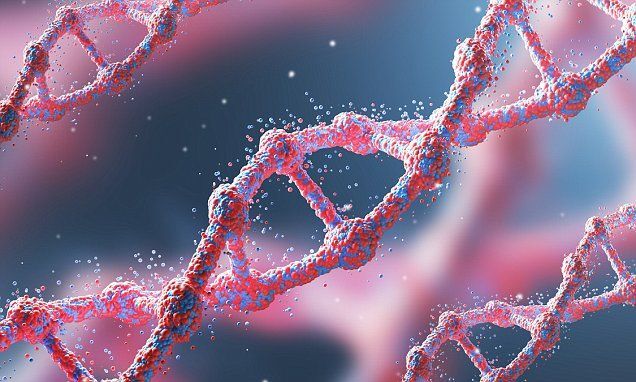[et_pb_section fb_built=”1″ _builder_version=”4.16″ _module_preset=”default” global_colors_info=”{}”][et_pb_row _builder_version=”4.16″ _module_preset=”default” custom_padding=”14px|||||” global_colors_info=”{}”][et_pb_column type=”4_4″ _builder_version=”4.16″ _module_preset=”default” global_colors_info=”{}”][et_pb_text _builder_version=”4.19.0″ _module_preset=”default” hover_enabled=”0″ global_colors_info=”{}” sticky_enabled=”0″]
The word “epigenetics” literally means “in addition to changes in genetic sequence.” The term has evolved to include anyprocess that alters gene activity without changing the DNA sequence, and leads to modifications that can be transmitted to daughter cells (although experiments show that some epigenetic changes can be reversed).
This latest discovery in science has been utilised by certain countries effectively as a new science (Reference – Sweden Case Study) of child development revolution, as it says that the Peace Potential is encoded in every newborn.
Let’s look at some interesting facts about the science of epigenetics with Psychotherapist “Robin Grille”. He says that theworld that surrounds the child changes the way that child’s genes are shaped. So, the childhood relationships around us and our environment drafts a genetic code by causing some genes to be switched on or some genes to be switched off.
According to Grille, “no human individual was ever born genetically predetermined to lead a life of violence. Every child (1 to 3 years age) has about ten Empathy centres which develop according to the treatment he receives.
For example; if a child grows in an empathetic environment the brain grows harmoniously, whereas if the same child grows in hostile or harsh environment, it is entirely contrary to the first one. In the first case, oxytocin hormone of love is released whereas; in the other case cortisol hormone of stress is released”.
Another way of looking at epigenetics is like this; while traditional genetics describes the way the DNA sequences in our genes are passed from one generation to the next, epigenetics describes passing on the way the genes are used.
So epigenetics is about how genes are expressed and used rather than the DNA sequence of the genes themselves. But how does this work? Many researchers have been studying epigenetics over the past few decades, and it is currently an area of intense research activity. We know that a part of how epigenetics works is by adding and removing small chemical tags to DNA. You can think of these tags as post-it notes that highlight particular genes with information about whether they should be switched on or off. In fact the chemical tag in question is called a methyl group.
This latest discovery in science has been utilised by certain countries effectively as a new science (Reference – Sweden Case Study) of child development revolution, as it says that the Peace Potential is encoded in every newborn.
Let’s look at some interesting facts about the science of epigenetics with Psychotherapist “Robin Grille”. He says that theworld that surrounds the child changes the way that child’s genes are shaped. So, the childhood relationships around us and our environment drafts a genetic code by causing some genes to be switched on or some genes to be switched off.
According to Grille, “no human individual was ever born genetically predetermined to lead a life of violence. Every child (1 to 3 years age) has about ten Empathy centres which develop according to the treatment he receives.
For example; if a child grows in an empathetic environment the brain grows harmoniously, whereas if the same child grows in hostile or harsh environment, it is entirely contrary to the first one. In the first case, oxytocin hormone of love is released whereas; in the other case cortisol hormone of stress is released”.

Was Epigenetics capitalised in the Earlier Civilisations?
Now when we have this knowledge available, we can reflect back and understand the kind of genes which were at play and were attempting to define the destiny of humanity. Let’slook at history, the earlier civilisations in every continent, children were used as slaves, temple prostitutes, they were severely beaten, and the lord of the time committed parents to kill or abandoned their own unwanted children at an unexpected rate, 2 out of every 5.
The practice of rituals, mutilations of children bodies was widespread around many countries of the world like elongation of skull, extracting the flesh etc. Child beating was so cruel that, “What we call as child abuse now, was considered as good parenting then.”
Even during the renaissance period as well as, in the era of Industrial revolution, the assassination still prevailed in millions. In Europe, families were hunted by the commune and conditions were so worse that at times survival rate was below 10%.

The potential of the Science of Epigenetics and what it can do to this world?
The above stated facts are a testimony to the fact that if we are able to capitalize on the science of epigenetics i.e. good parenting coupled with government measures, we can drastically impact the Peace Index of a nation. The science of epigenetics should be made available to every parent and youth as today’s youth is tomorrow’s parent, tomorrow’s leader.
With this discovery, we have understood that we are already at a better place, now acting upon this knowledge would be so cheaper than trying to find remedies for repercussions, this is more responsive than reactive.
[/et_pb_text][/et_pb_column][/et_pb_row][/et_pb_section]

Comments are closed